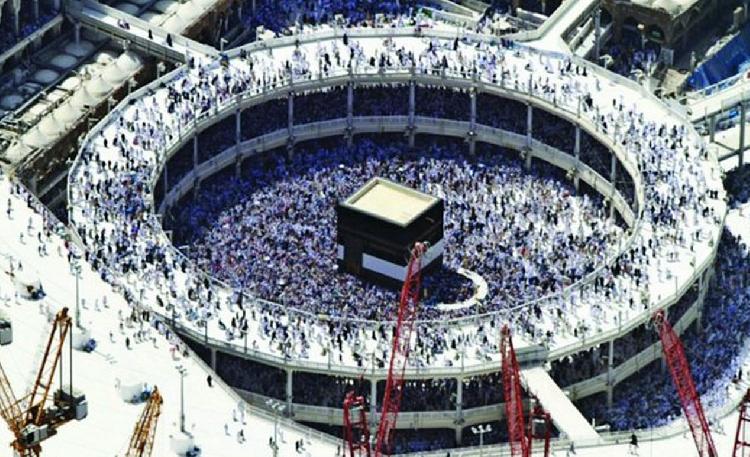
Journey of faith: Pilgrims begin moving into Mina
As the night wore on Monday, pilgrims started filling into the tent city of Mina.
They came in ones and twos, some on foot, some in wheelchairs, many in buses and SUVs arranged by the pilgrim establishments.
All roads and highways from Jeddah, Madinah, Riyadh, Dammam, Abha, Jazan and Taif were leading into Makkah and Mina.
The first leg of the five-day Haj begins on Tuesday when all pilgrims will spend the night in Mina before heading to Arafat on Wednesday morning.
Under the leadership of Custodian of the Two Holy Mosques King Salman, Crown Prince Mohammed bin Naif, Deputy Crown Prince Mohammed bin Salman and Makkah Gov. Prince Khaled Al-Faisal have arranged foolproof safety and security measures for the pilgrims.
Nearly 100,000 men in uniform are at the holy sites to make the journey of a lifetime for nearly 2 million pilgrims safe and secure.
“Haj is where you see near-perfect synchronization among all government agencies, ministries and pilgrim establishments,” said prominent Saudi analyst Sami Al-Nwaiser. “It is gigantic task and the goal is to organize a successful, smooth and hassle-free Haj.”
Traffic moved at a snail's pace on the Jeddah-Makkah Expressway. In addition to the permanent security checkpoint at Al-Shumaisy, there were four new checkpoints to keep undocumented pilgrims away. The 85 km journey from Jeddah to Makkah takes an hour in regular days. On Monday, it took three hours.
At the Al-Shumaisy checkpoint, security personnel were armed with latest high-tech gadgets that looked like iPads. They were screening the permits on those machines.
All alternate routes to Makkah and the holy sites were teeming with security forces in their vehicles, flashing with blue beacons.
Inside Makkah, it was hot and windy. At 7:38 p.m., the mercury was hovering at 40 degrees Celsius. In Mina, it was a different scene. It rained on Monday evening bringing down the temperature considerably. The maximum temperature for Tuesday in Makkah has been forecast to be 46.
The Kingdom has spent billions of riyals improving infrastructural facilities at Makkah, Mina, Arafat and Muzdalifa, including trains, roads, telecom and electricity networks.
“It is a mind-boggling exercise,” said Anwar Khursheed, a first-time pilgrim from Pakistan, who teaches at Punjab University. “Allah has conferred the highest honor of serving the Two Holy Mosques on the Al-Sauds and they have done everything that is humanly possible and doable to make the journey of the guests of Allah comfortable.”



























